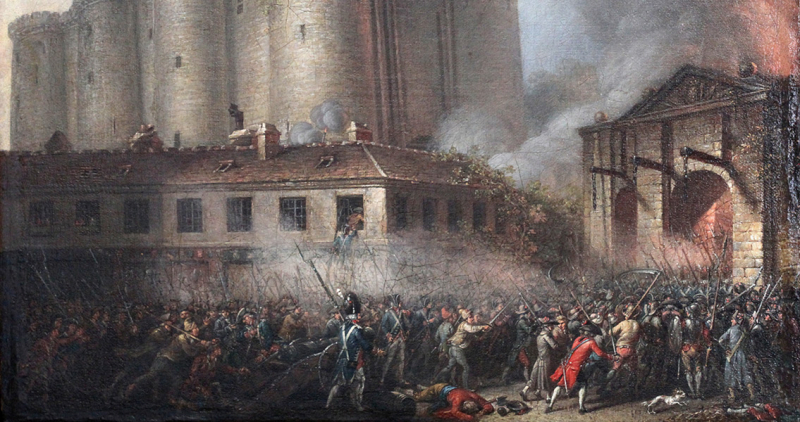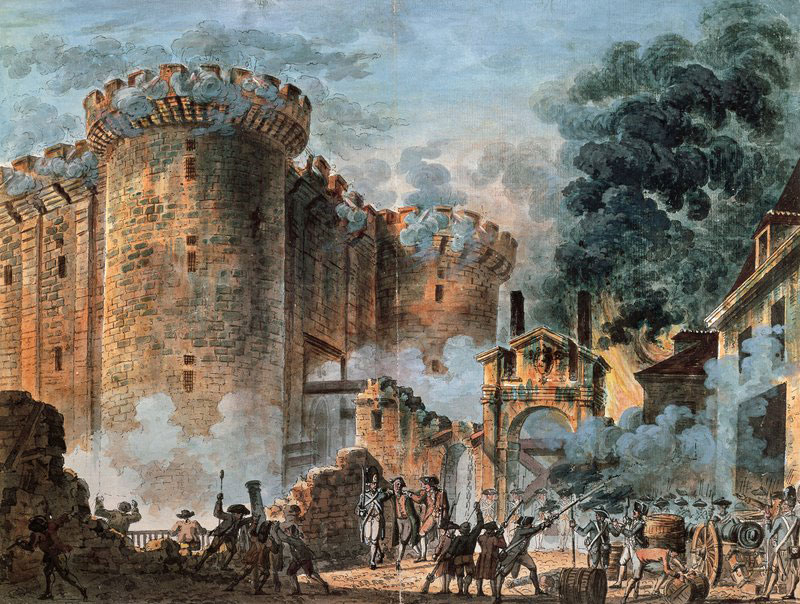The storming of the Bastille Prison, July 14, 1789
Revolutionaries were fed up with the monarchy's aversion to change by July. In addition, the king fired Jacques Necker, the general director of finances. Necker was a supporter of the National Assembly, and his removal was interpreted by the French as a direct attack on the Assembly.
On July 14, 1789, a mob of enraged French citizens stormed the Bastille Prison in Paris. To be able to defend themselves against the monarchy, the rebels seized gunpowder and firearms. The Bastille forces held out for a few hours before surrendering to the mob. Some regard the collapse of the Bastille, a symbol of power and monarchy's authoritarian authority, to be the beginning of the French Revolution. As a result, King Louis XVI ordered the withdrawal of royal troops from Paris and the recall of finance minister Jacques Necker. Because of the historical significance of the storming of the Bastille, July 14 is observed as France's national day. In English, it is known as Bastille Day.
Dates: July 14, 1789














